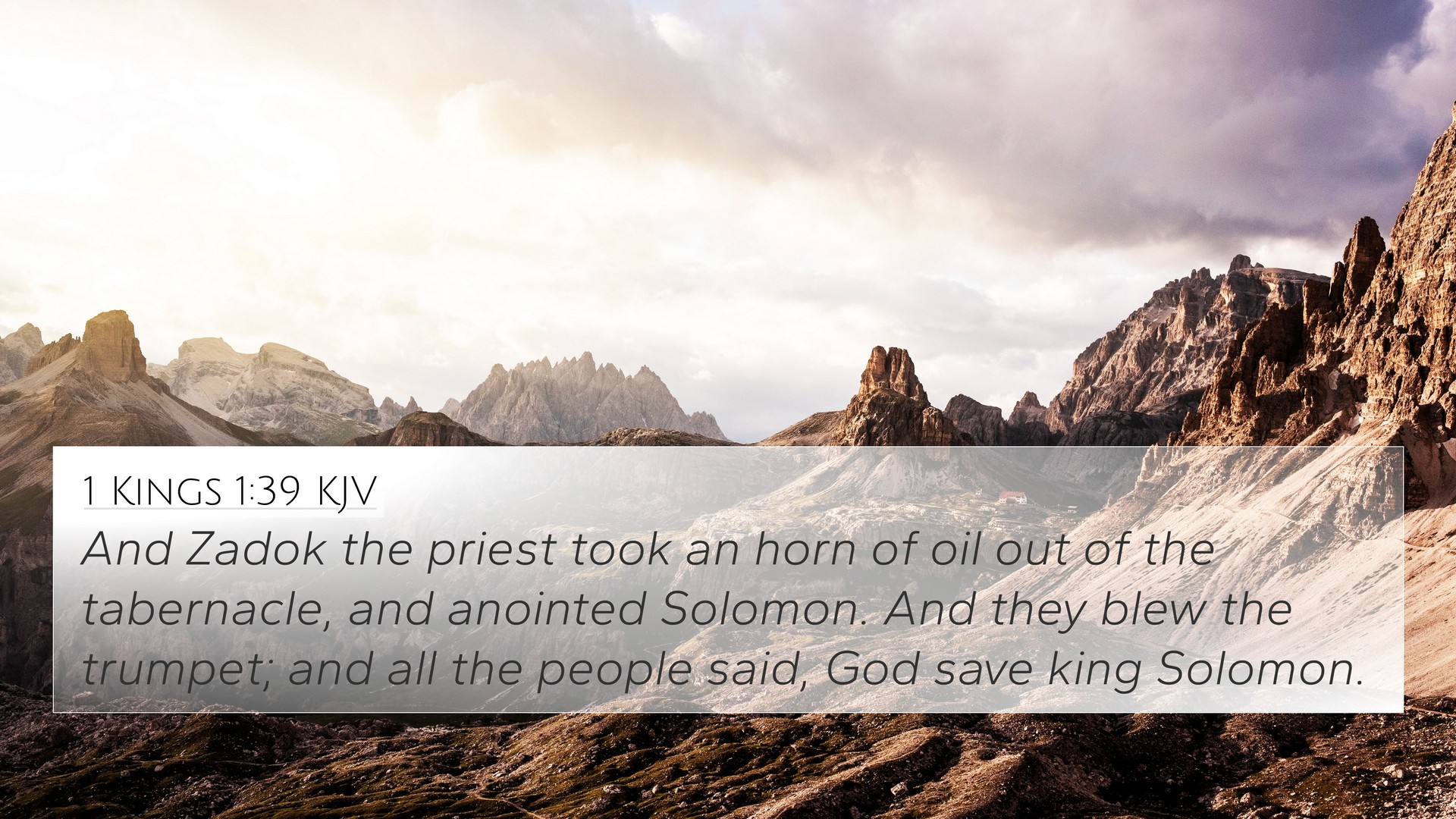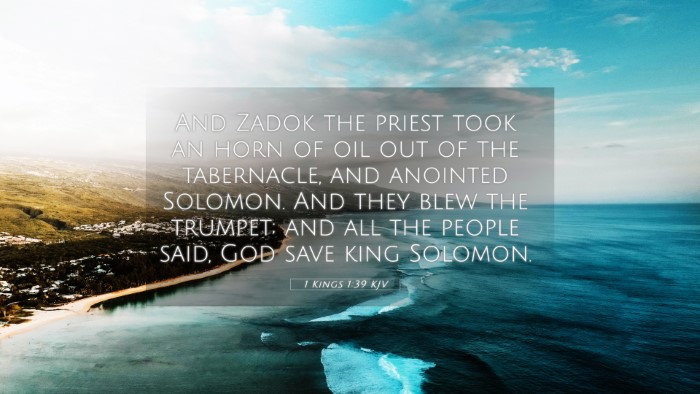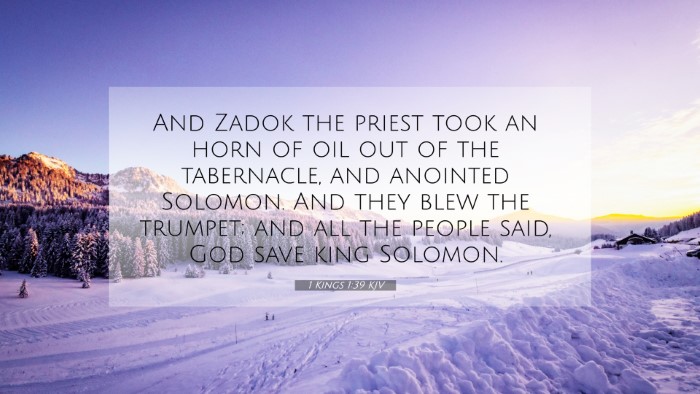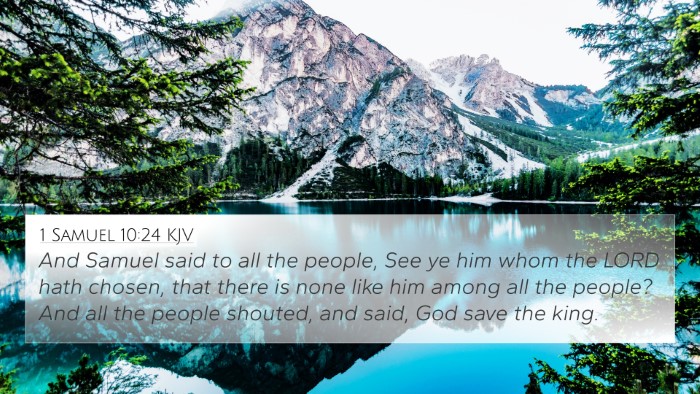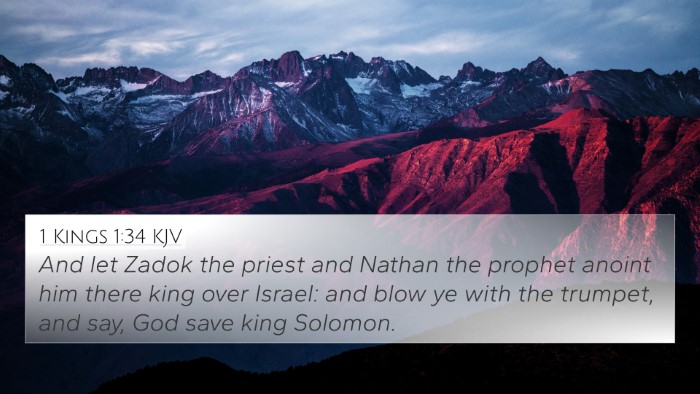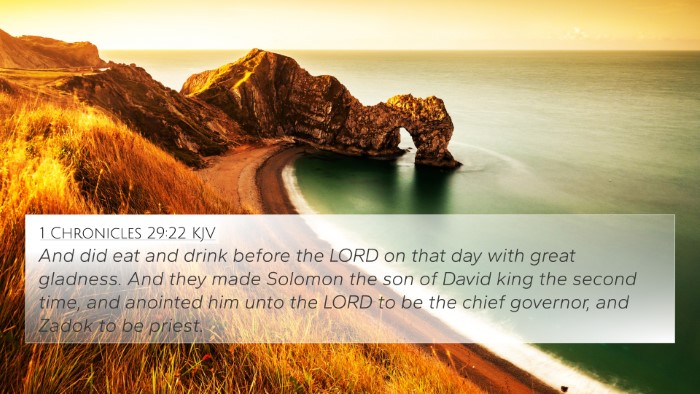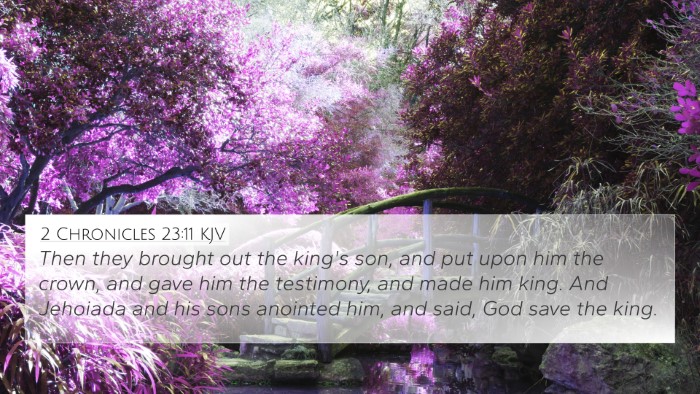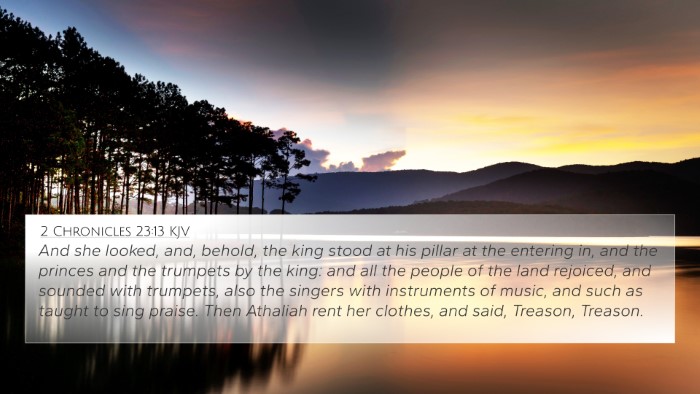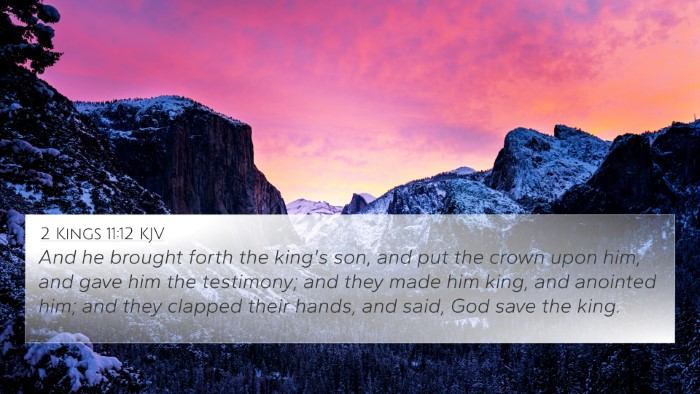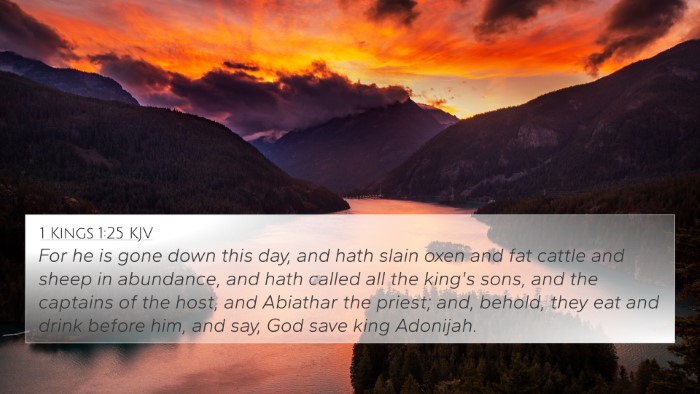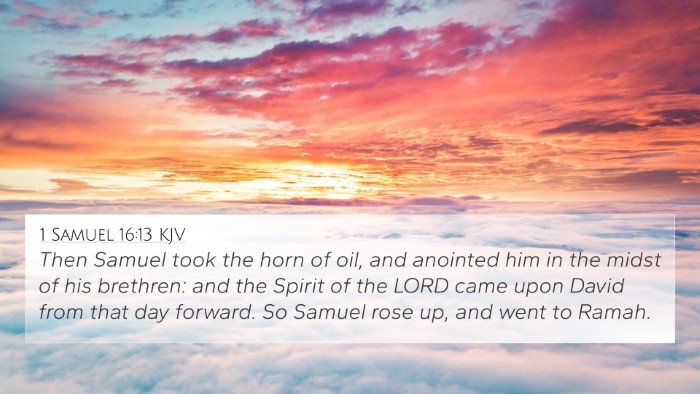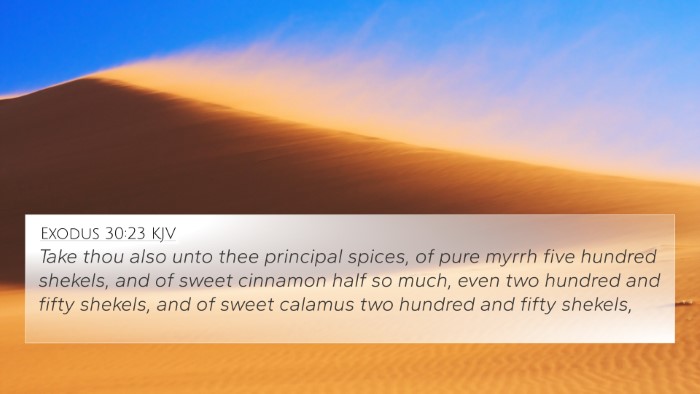Understanding 1 Kings 1:39
Verse: 1 Kings 1:39 - "And Zadok the priest took a horn of oil out of the tabernacle, and anointed Solomon. And they blew the trumpet; and all the people said, God save king Solomon."
This verse describes the anointing of Solomon as king, which is a significant event in the history of Israel. By combining insights from several public domain commentaries, we can gain a deeper understanding of this verse.
Summary of Insights
- Zadok's Role: Zadok the priest plays a pivotal role in the anointing, signifying the divine endorsement of Solomon’s kingship. Matthew Henry emphasizes Zadok’s position as a faithful priest who was pivotal in guiding Israel during a tumultuous period.
- The Symbolism of Oil: Albert Barnes notes that the act of anointing with oil symbolizes the Holy Spirit's presence and authority over the anointed. It sets Solomon apart as chosen by God to lead His people.
- The Trumpet's Sound: The blowing of the trumpet is a prophetic act that signifies celebration and the commencement of Solomon's reign. Adam Clarke points out that this public declaration was necessary to legitimize Solomon’s kingship among the people.
- God Save King Solomon: The declaration made by the people highlights their acceptance and support of Solomon as the new king. This phrase indicates a communal acknowledgment of God’s sovereignty in choosing their leader.
- Historical Context: This event is set against the backdrop of Adonijah’s attempt to claim the throne. The act of anointing Solomon reaffirms that God’s plan is unfolding despite human attempts to alter it, emphasizing the theme of divine providence.
Cross-References and Connections
To gain a broader understanding of this verse, it is helpful to look at some related scripture passages that share similar themes or events. Here are key cross-references:
- 2 Samuel 15:10: The conflict over kingship begins with Absalom's rebellion, illustrating the challenges faced during the transition of power.
- 1 Chronicles 29:22: This passage provides further context regarding the people's support and their anointing of Solomon as king.
- Psalm 2:6: A reflection on God’s anointed king, suggesting the divine authority bestowed upon the ruler.
- 1 Samuel 16:13: This verse narrates the anointing of David, drawing a parallel between David's and Solomon's appointing by God.
- Hebrews 1:9: This New Testament reference speaks of Christ as the anointed one, establishing a thematic link through the idea of Divine choosing.
- Exodus 30:22-33: Instructions on the sacred anointing oil, providing deeper insights into its significance and sacredness in the Bible.
- Proverbs 8:15-16: Wisdom as a guiding principle in leadership, paralleling the divine guidance given to Solomon.
- Matthew 21:9: The fulfillment of messianic expectation, where shouts of “Hosanna” resonate the same communal support witnessed during Solomon's anointing.
- Revelation 5:5: Connection to Jesus as the Lion of the tribe of Judah, linking the royal lineage from David to Christ.
- Genesis 49:10: The prophecy regarding the scepter not departing from Judah, establishing the legitimacy of Solomon’s reign in light of God's promise.
Thematic Connections
The anointing of Solomon is not only a historical moment but also a symbol that resonates throughout the Scriptures. The themes of divine election, leadership, and anointing connect various Biblical passages, showing a continuing narrative of God’s plan.
Understanding this verse through cross-referencing with other scriptures enhances our comprehension of both the Old Testament kingship and the overarching narrative that culminates in the New Testament through Jesus Christ.
Conclusion
1 Kings 1:39 serves as a pivotal moment in the history of Israel, symbolizing God's sovereignty and the establishment of His chosen leader, Solomon. By cross-referencing with related verses, we can see the richness of this event and how it ties into the larger metanarrative of scripture.
In engaging with scripture, such as through comparative Bible verse analysis and thematic connections, we unveil the interconnectedness of God's messages across different contexts and time periods, enriching our understanding of His Word.
